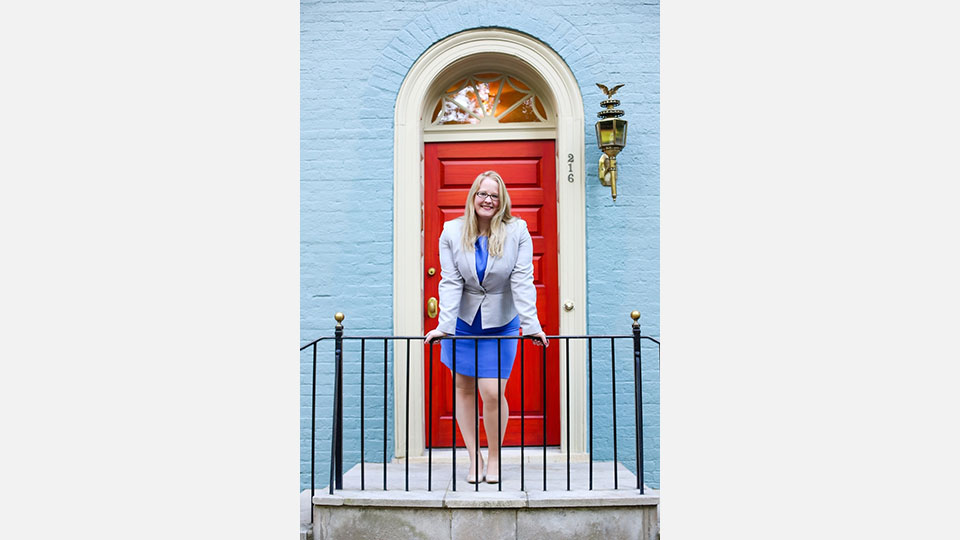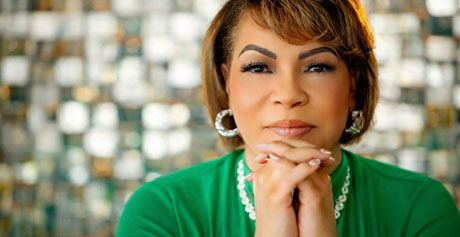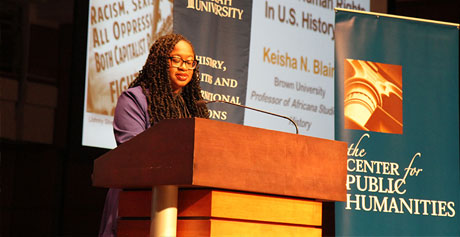A Conversation With Kate Daczka, Licensed Attorney, Commonwealth of Pennsylvania

As an assistant counsel with the PA State Police Office of Chief Counsel, Kate’s current practice is comprised of advising and representing her client regarding civil matters impacting the State Police.
Q: When did you know you would pursue a career as an Attorney?
KD: I am very fortunate to come from a family that values education, life experience, and societal contribution. So, I was cognizant from a younger age that I wanted to work in a field where I could help society in a meaningful way on both an individual and group level. In high-school I knew becoming an attorney was an eventual career that I would like to pursue. However, I was also very interested in the arts and theatre. I majored in theatre design and technology, and I came out of college knowing some incredible artists. I was also confident that I was making the right decision to go to law school. My theatre experience endorsed that I had leadership capabilities, critical thinking and “emergency” response skills. It taught me to be resourceful, be a team player, and have an eye on audience perception. Theatre also taught me that with my skillset I was more apt to find the type of societal impact work I was looking for in the legal realm.
Prior to my 3L internship with a federal magistrate judge, I assumed I would use my degree to be an attorney. However, I knew that would be the first leg of my career after researching habeas corpus death penalty matters. Through this, I was able to see the impact the legal profession could have on a single case over 10-20 years. I became very interested in legislation, how it impacted people generally and those involved in the legal system, and how it was shaped by litigation. I knew I needed to be a licensed attorney before I looked to specialize my practice or deviate to a less obvious course. In my current position I am so lucky to be at the crossroads of those interests and I am excited to grow my career here.
Q: Can you share with our audience, the types of law you specialize in?
KD: I have not been practicing long enough to truly specialize, however am currently focusing on the Right to Know Act, Criminal History Records Information Act, Motor Vehicle Code, and Employment and Labor Relations, among other areas. In previous positions, I was able to focus on Fair Housing, Family Law, Auto Defense, Premises Liability, Landlord/Tenant, etc.
Q: What aspects of the daily job of being a lawyer interest you the most?
KD: My favorite aspect is the constant learning and forming a well thought out opinion. I am a nerd to my core, and I really appreciate understanding the context around a problem, rather than just the facts of the problem. I also appreciate that lawyers are asked for their well-informed opinion. We aren’t a group that needs to be driven to be the fasted to an answer, but rather we strive to have the most correct and well-reasoned answer. I like that the instant gratification culture hasn’t replaced the need to think before you leap. My job highlights that fact and reminds me to slow down.
Q: Why did you decide to attend law school?
KD: I’ve had some clever teachers. In 2004, my middle school put on a student run, mock presidential debate featuring “John Kerry,” “President George W. Bush,” and “Ralph Nader.” I have been interested in government, legislation, leadership, societal change and theatrics since then. I decided to attend law school because I had been considering a number of careers (including medical school) that would advance my own values of continuing education, gaining interesting life experiences, and making a positive societal contribution. I was interested in the law generally and a lot of the professional paths I wanted open to me either required a J.D. or was benefitted by a J.D. Law school gave me a flexible degree for a flexible career path with a lot of open doors.
Q: What types of cases do you handle?
KD: As an assistant attorney with the Pennsylvania State Police, I work with a team of counsel in the Office of Chief Counsel to help the agency function to the best of their abilities. Within that role I research and advise our chief counsel regarding civil issues that may be facing the agency. I also represent the agency at hearings or through filings.
Q: What is your approach or philosophy to winning or representing a case?
KD: I find the most success by coming to the task prepared – preferably having out-prepared the opposing counsel – and ready to listen. I have found that when I am fully prepared, I am able to quickly adapt my thinking to counter an argument when necessary or broker an agreement where advantageous. My philosophy when representing a client is that you need to be prepared, flexible, and a good listener. You can always win a case on good facts, but you can also lose a case by relying on good facts and old argument alone.
Q: Can you share with our audience the type of pro-bono work you do?
KD: I like to use volunteer work to bolster my outside work passions. I try to volunteer with non-legal organizations, such as Horses for Hope or teaching budgeting classes to families at my church. Most of my legal volunteer work comes through my local bar association or colleagues. My “day-job” is also a public service legal interest that attorneys may collaborate with to work pro-bono.
Q: If we interviewed all your past clients … what is “one” common word that comes up when they describe working with your law firm?
KD: Engaged or thorough. My colleagues are great to work with. Not only is it a supportive work environment, but they also push you to continuously better your work product and broaden/narrow your thinking. I believe this results in attorneys who are able to consistently deliver exceptional and thorough advice and work product to the client.
Q: What was the most challenging part of law school for you?
KD: I had a difficult time with my priority and time management skills. Specifically, I was over-promising my time after assuming new or different responsibilities within the school and the community. I caused myself unwarranted stress by continuing to say yes to additional opportunities or obligations as they were presented. Prior to law school, I had been able to juggle school, work, and a social life all at once without over-extending myself. In law school, and as an attorney, your work becomes very demanding of your attention, time, and care to details. It is very easy to forget that adapting to a new skill as an attorney or law student requires a lot more time and effort to acquire basic proficiency, let alone succeed or excel. Now, I am more cognizant of my time limitations.
Q: What advice would you give to young women who want to pursue a career as an Attorney?
KD: Ask yourself why not and really consider the “nots.” Being an attorney is really empowering and you will meet some truly incredible people, however, the steps to get there provide a lot of room for error. If you want to be an attorney, set yourself up for success and see if you can mitigate the “nots” including cost. I believe it is wise to shadow people you think are doing a job you could see yourself doing (regardless of whether they have a JD). My biggest piece of advice? Focus on your own experience and goals rather than anyone else’s expectations. Remember that a J.D. required career isn’t necessarily a first career and having other experiences or jobs before heading to law school can really inform your later practice as an attorney.
Q: Were there moments in your career that were pivotal to getting where you are today?
KD: Yes, though it was more like there were pivotal people providing guidance while I mustered through. The pivotal moments are the ones where I recognized my confidence growing in my professional identity. For example, after my first year I felt hopeful that I was going to be successful in this role. Year Two, I felt confident knowing I’d made it, year one was not a fluke, I was becoming more efficient and effective as time passed and I understood how to approach and get after new challenges in my practice. Approaching my fourth year in practice, I am focusing on broadening my knowledge and experience base.
Q: What expectations did you have after graduating and receiving your law degree?
KD: My expectations were very different than the reality I experienced in terms of making a living. I fully expected and planned that I would pass the bar immediately, have a great job as a litigator, and be able to make a living for my family’s needs with that job alone. While that particular plan did not happen, I eventually made it and more importantly I learned an immense amount about the business of creating your own opportunities after graduation.
Q: What are the best practices you have employed to build a successful career?
KD: Learn when to ask questions and ask them frequently. See if you can anticipate the needs of your boss or clients and be prepared for questions or assignments that are coming down the pipeline. Stay organized and communicate. Always respond to people within 1-2 business days, and if you don’t know the answer they are looking for, help them find it where applicable. Remember your professionalism.
Q: What has been the most interesting legal issue you’ve dealt with in your legal career?
KD: During a law school internship in North Carolina, I was asked to research whether a frozen chicken, when lobbed at another person’s head, qualifies as a “dangerous weapon.” In my professional, legal opinion, I can tell you, “it depends.”
Q: What is it about your job that most excites you?
KD: Being a well-informed, versatile, and helpful sounding board when complex problems or far-reaching consequences are faced. It is rewarding to be a reliable source of information, particularly in the era of misinformation we are currently living in.
Q: What's your advice for women in male-dominated fields?
KD: Set your goals and get after them. Ask questions, stick up for your ideas, offer alternative solutions if you see one. Speak up and remember that you have earned your seat at the proverbial table and your opinion is valuable and necessary. Ask an older female attorney whose business and professional skill you admire what she did to get there. Ask people to lunch. Invest in other women in your field. Most importantly, invest in your own physical, mental, and emotional well-being because you cannot burn a candle from both ends and you cannot be poor from an empty cup.
Q: What's the greatest fear you've had to overcome to get where you are today?
KD: The biggest fear I had was that I was not providing a service to the people I was trying to help. I was scared I would be a detriment to my clients due to my lack of knowledge or experience. I quickly came to realize that my lack of knowledge only makes me ask more questions and do more research to provide the best advice possible. I also came to realize that the practice of law is called a “practice” for that very reason.
Q: Can you tell our audience one of your most memorable moments your career?
KD: I do not think I will ever forget the moment one of my clients got her children placed back into her care. My client was a young woman who was ill with the disease of addiction. As a consequence of her actions during active addiction, her children were removed from her care. My client worked extremely hard to get herself re-established as a stable, involved, and sober mother to her two small children. It was a privilege to help my client get the legal hurdles out of her way so that she could focus on the harder job to meet her long term-goal of becoming healthy and have her children returned. It was truly rewarding to see a family’s future be re-established together.
Q: What’s one lesson you’ve learned in your career that you can share with our audience?
KD: Try to become a person of value rather than a person of success.
Q: Which woman inspires you and why?
KD: Laurie Santos, PhD. Dr. Santos is a cognitive scientist and Professor of Psychology at Yale University, she inspires me to broaden my mind, think outside of the box, and examine the why of behavior. She is a brilliant scientist with a unique take on productivity, positivity, and achievement. She is empathetic and interested in helping people in a way that is completely different from my skillset. Her podcast, “The Happiness Lab” is one of my favorite ones to follow.
Q: What are some of the challenges you feel women face today?
KD: In general, I believe the wage gap, sexual harassment, and micro-aggressions are three of the most prevalent challenges that those who present and/or identify as female may experience. In healthcare, I think one of the most significant challenges is the maternal and infant mortality rate for women in the US (particularly the racial disparity experienced by Black and African American mothers). In leadership, I believe a serious challenge is supporting and retaining young women to assume more leadership roles and creating opportunities to support their advancement.
Q: What advice would you give to young women who want to succeed in the workplace?
KD: Show up ahead of time, be present, listen, and follow through with your commitments and responsibilities. I think seizing opportunities quickly as they come, putting your nose to the grindstone, and being a kind and conscientious professional will get you a long way.
Q: After high school, where did you feel your career path would take you?
KD: I honestly didn’t know. I knew I wanted to explore a lot of avenues and have more than one career objective, so I started with the broadest base I could to work my way up.
Q: Can you tell us how you manage your work life balance?
KD: To be honest, that balance evolves regularly. I work really hard to separate my work from my home life. Otherwise, and sometimes in spite of this, I am rarely unaware of my cases or outstanding tasks. However, I make sure to turn off my devices and give myself electronic-free time at the end of every day. I also like to go for hikes or runs with my dog on a daily basis.
Q: What would be the title of your autobiography?
KD: When the Plan Goes Awry.
Five Things About Kate Daczka
1. Who is the most fascinating person you’ve ever met?
Bryan Stevenson. He is such an inspiring person and seems to move mountains. I admire his spirit and unwavering drive. I heard him deliver a keynote speech immediately following his first book: Just Mercy.
2. Who is your favorite author?
Tamora Pierce. I have loved reading her books since I was a pre-teen, but the stories are ones you can always come back to.
3. What’s your favorite quote or saying?
Albert Einstein has a lot of my favorite quotes, but this one resonates: “Out of clutter, find simplicity. Out of discord, find harmony. In the middle of difficulty, lies opportunity.”
4. What’s your signature drink?
Bourbon or Rye, Neat. I was born and raised in Kentucky, and I think I grew up approximately twenty minutes from Woodford Reserve and I am quite biased with them as my favorite.
5. What would your perfect Saturday be like?
A morning hike with my dog, followed by a local brewery for lunch, and an afternoon spent by the lake.
The thoughts, opinions, and information provided within this interview does not, and is not intended to, constitute legal advice; instead, all information, content, and materials available on this site are for general informational purposes only. The views expressed herein are the author’s own and not necessarily those of the Pennsylvania State Police, the Commonwealth, or the Office of General Counsel.


